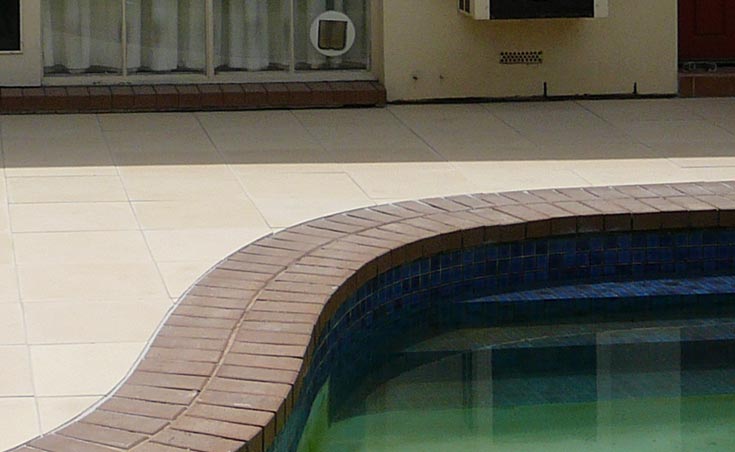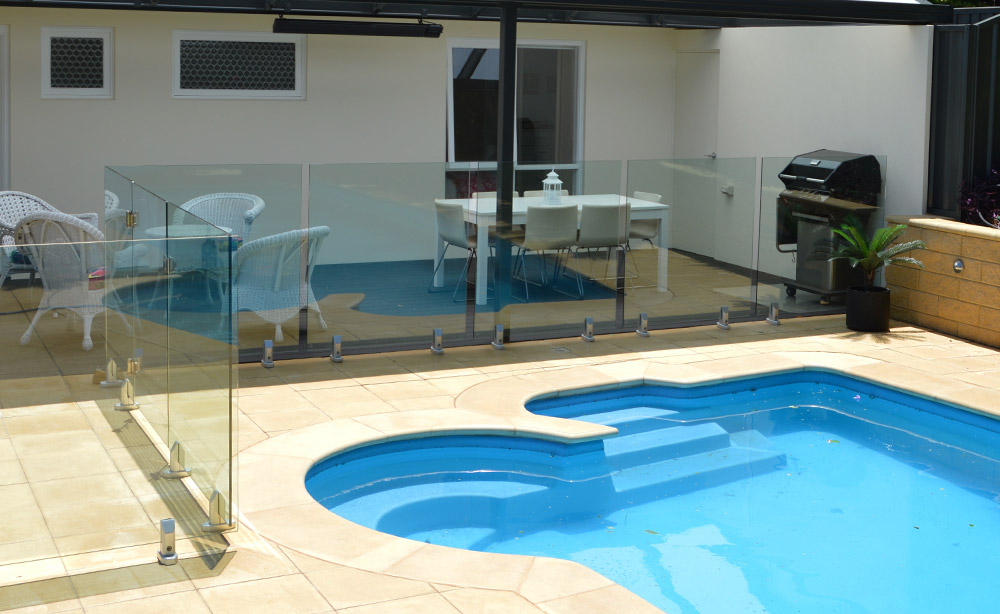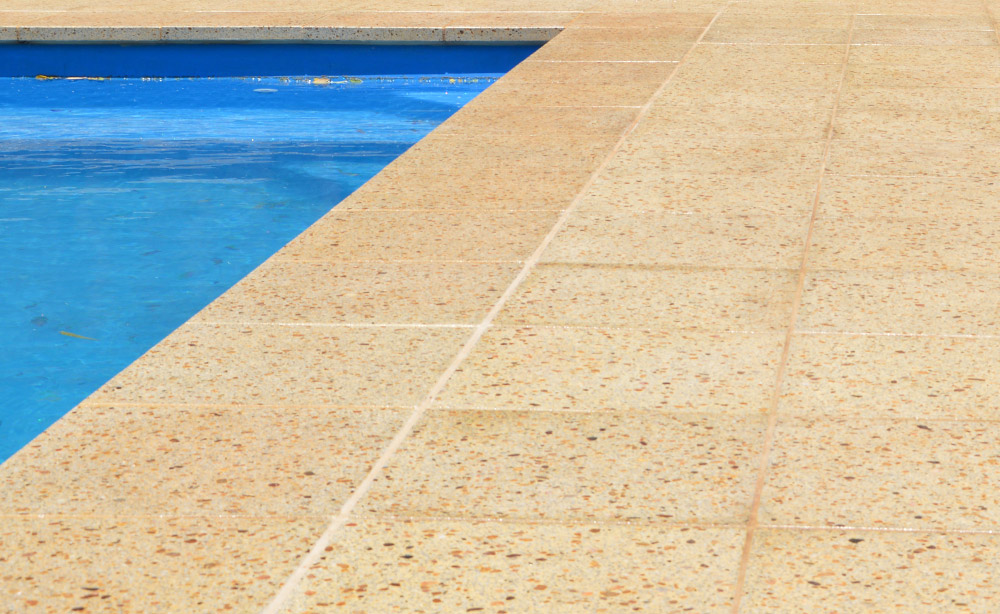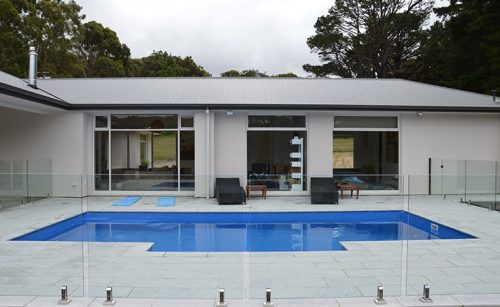Ideas For Paving Around Pools Using Pool Pavers & Pool Coping.
Paving around pools is by far the most popular flooring alternative Adelaide swimming pool owners choose. Pool pavers and pool coping laid correctly can add value to your home while giving you an attractive and practical all weather surface.
Types of Pool Pavers
Pool pavers are commonly made from 3 different types of materials, brick, concrete and stone. This article discusses the benefits of each and will hopefully help you decide what pool pavers and pool coping you’ll select when paving around your pool.
Benefits of Using Brick Pavers For Paving Around Pools
Brick pavers are made from clay and come in a huge range of ‘earthy’ colours. Bricks are fired at extremely high temperatures, so will not fade under the Sun’s heat. Bricks offer a natural slip resistant surface, important when paving around pools and you should look at a range that have a smooth surface to avoid foot cuts. Although unaffected by chlorine, brick pavers should be sealed to avoid stains from pool salt.
Sealing brick pavers will bring out more of the bricks natural colour and also prevent stains from food or drink dropped on them.
Although brick pavers can be a cheap alternative, because they’re smaller than other pool pavers, suited to larger paving areas, they’re often more expensive to lay. Brick pavers can be used effectively as a feature border around the pool.

Benefits of Using Concrete Pavers For Paving Around Pools
Concrete pavers around pools are by far the most popular when choosing pool pavers. Concrete pavers with matching concrete pool coping come in a wide range of colours, are smooth and offer slip resistant properties due to their textured finish.
Pavers made from concrete do however need to be sealed to prevent stains from chlorine, salt, food and drink.
Choose from a wide range of sizes of both square and rectangular shapes, with several thicknesses available depending on the type of traffic they will subjected too. For smaller areas choose large format concrete pavers to give a feeling of space.

Glass pool fencing is easy to attach to concrete pavers for a modern look.
Benefits of Using Stone Pavers For Paving Around Pools
Natural stone pavers around pools are often made from sandstone or bluestone. Although more expensive than other pool pavers, they’re naturally elegant. Stone pavers and pool coping edge pieces must be sealed to protect them from staining and fading. Specific sealers are available to make them slip resistant and to enhance their natural colour.

Pool Paving Tips:
Licensed paving contractors such as from Visual Landscape Gardening should be used to make sure your pool pavers are laid correctly, on a compacted quarry rubble base, or wet laid on concrete to help prevent movement.
Sealing pavers as soon as they’ve been laid is also very important to avoid chlorine and salt leaving permanent stains.



 Courtyard Garden Makeover Unley
Courtyard Garden Makeover Unley Pool Landscaping Heathfield
Pool Landscaping Heathfield Pool Landscaping Adelaide Suburb Of Glengowrie
Pool Landscaping Adelaide Suburb Of Glengowrie

